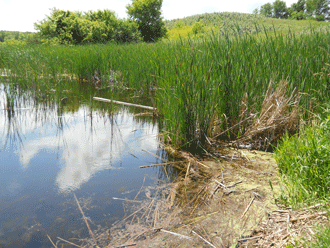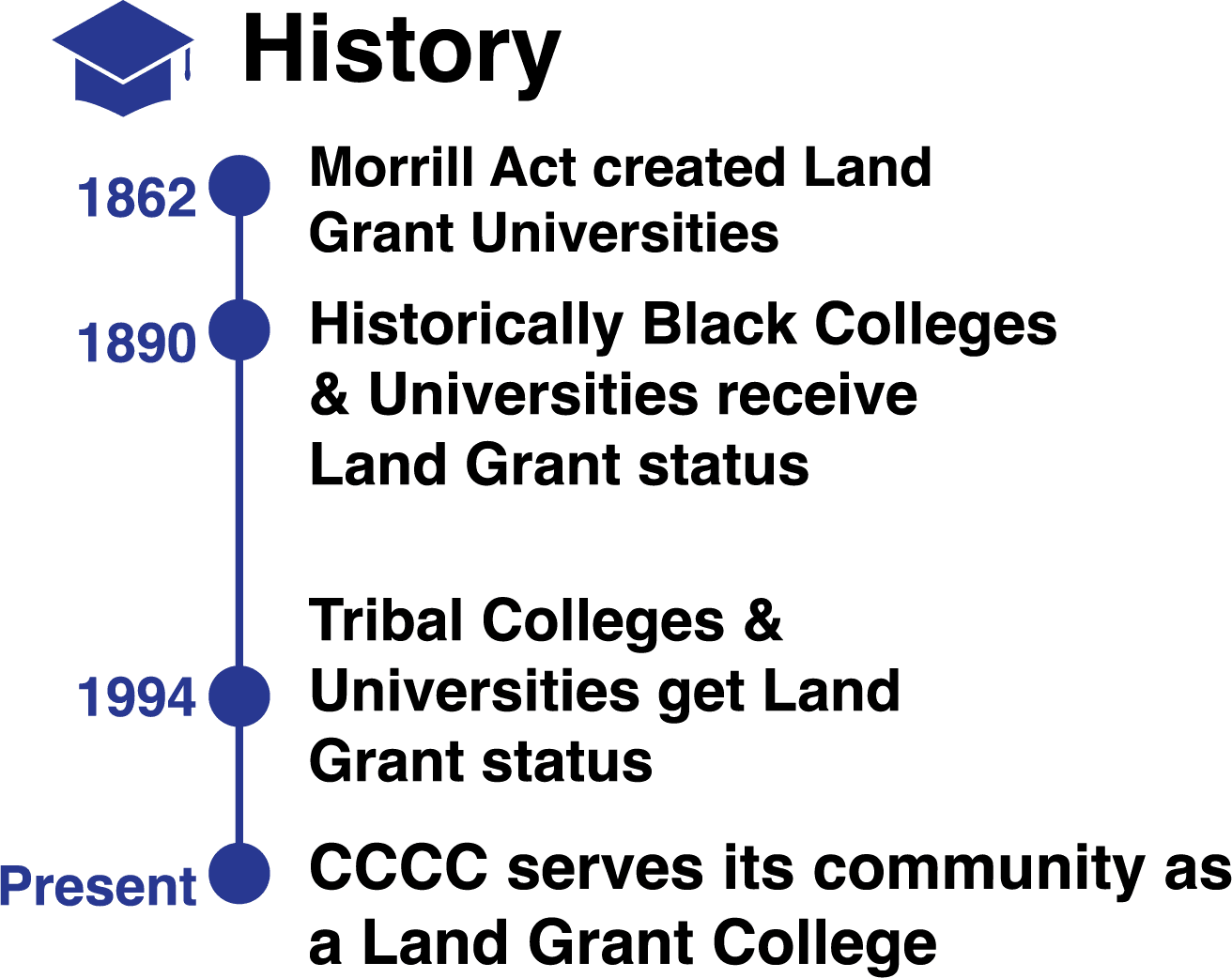

Land Grant is a designation by Congress that establishes a relationship between the federal government (US Department of Agriculture) and a college/university to support educational activities (teaching, extension, research) related to the agriculture and family sciences.
The founding principles of Land Grant are:
Access to higher education for the ‘industrial classes’
Promotion of ‘practical education’
A federal role in higher education
Historically, Land Grant has included a tri-fold focus of teaching (for-credit/academic, classroom), extension (community education), and research.
In 1994, 29 tribal colleges and universities (TCUs) were recognized by the U.S. Congress with Land Grant status under the authorization of the Equity in Educational Land Grant Status Act (Section 354 of P.L. 103-382). The legislation was significant because TCUs represent Tribes with land bases who lacked equity by not receiving land grant funding, access to grants, or other benefits of the status prior to 1994. CCCC was one of the TCUs identified in the legislation as a ‘1994 Tribal Land Grant College’ and are sometimes referred to as the “1994s.”
Land grant status and the funding it provides is instrumental to any college or university carrying that designation because it creates opportunities and access to resources to carry out the three traditional tenets of land grant institutional missions – teaching, extension, and research. The 1994s have access to a competitive grant process for the following areas:
- An endowment fund (in lieu of a land) that supports all the focus areas in the broadest sense with the interest distributed among the 1994s based on formula (40% even split; 60% using Indian Student Count/ISC).
- Equity program for-credit/academic instruction, curriculum, faculty development, equipment/materials, student programs, etc. Funding by formula (equally divided).
- Extension program for research-based non-formal education, community development, demonstrations, professional development, etc. Base funding (called capacity) scored competitively and divided equally among the 1994s by merit. Special emphasis competitive among 1994s.
- Research – applied, undergraduate students, participatory, in partnership with an 1862 (State institutions) or 1890 (Historically Black Colleges & Universities). Funding is competitive among 1994s.
- Rural Development Community Facilities Program – supports community facilities, libraries, day care centers, campus improvements, etc. Funding as a set-aside equally divided but awarded based on qualifications.
Land Grant status brings a real benefit to CCCC and to the Spirit Lake Dakota community. CCCC has a Natural Resource Management Associate of Science degree; several science classes available for general education credits; and transfer agreements with other institutions for bachelor’s degrees in natural resources and environmental science fields. CCCC has greenhouses, garden tilling services, nutrition workshops, 4-H, farmers markets, the community garden, and other agricultural outreach services. The programs works on food security, food sovereignty, Tribal culture, youth development, and much more. Please reach out to the Land Grant department at extension@littlehoop.edu or 701-766-2375 for more information to join the team!


